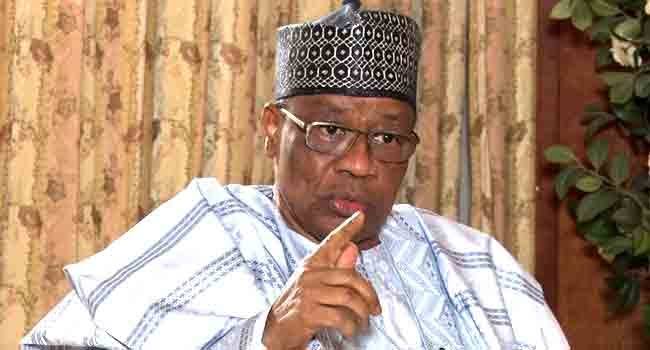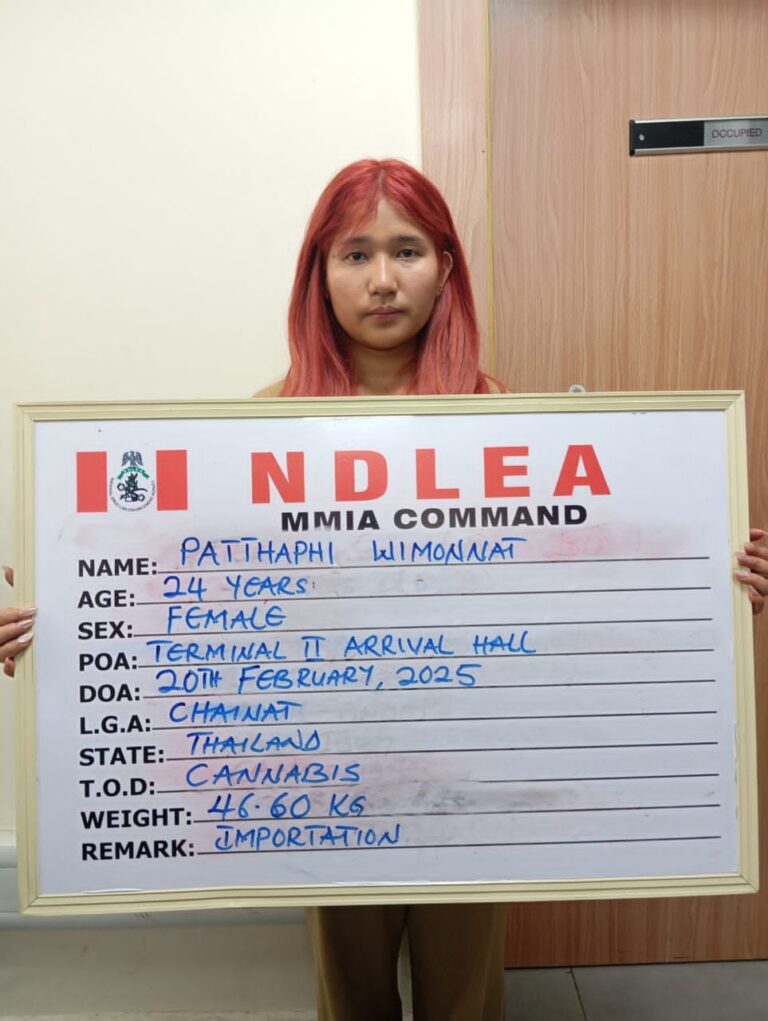
Canadian Embassy responds to Nigeria’s Defence Chiefs’ visa denial saga
Canadian Embassy responds to Nigeria’s Defence Chiefs’ visa denial saga
The High Commission of Canada in Nigeria has addressed reports regarding the denial of visas to Nigeria’s Chief of Defence Staff (CDS), General Christopher Musa, and other senior military officials who were set to attend an event in Canada.
In a brief statement posted on its official X on Friday, the High Commission acknowledged the media coverage surrounding the issue.
However, it refrained from providing specific details about the visa applications of the individuals involved, citing privacy concerns as the reason for not disclosing such information.
“The High Commission of Canada in Nigeria is aware of media reports related to planned travel to Canada by senior officials. However, for privacy reasons, we are unable to provide any comment on the status of visa applications of specific individuals,” the statement read.
The development follows a statement by General Musa on Thursday during the inaugural annual lecture of the National Association of the Institute for Security Studies (AANISS) in Abuja, where he revealed that he and several of his colleagues were denied visas to attend an event in Canada.
“Every disappointment is a blessing. Yesterday, I was meant to be in Canada. There’s an event to honour our veterans, those that were injured during battles, and we were meant to be there,” Musa said.“We were invited with our team. Half has gone, and half has been denied. It’s very disappointing,” he added.
News
Why we removed Buhari’s Govt in 1985 through Military coup – IBB gives further revelations

Why we removed Buhari’s Govt in 1985 through Military coup – IBB gives further revelations
In a striking revelation, former military president General Ibrahim Babangida (retd) has shed light on the underlying cause of Major General Muhammadu Buhari’s ousting in 1985. According to Babangida, the removal of Buhari was a direct result of his tendency to personalize leadership during his time as Head of State.
Buhari, who initially came to power in a military coup in December 1983 that removed then-President Shehu Shagari, was himself toppled two years later. Babangida, who played a pivotal role in that power shift, shared insights in his book ‘A Journey in Service’, where he discussed the “holier-than-thou” mindset exhibited by both Buhari and his deputy, the late Brigadier Tunde Idiagbon. This approach, Babangida argued, alienated the military and the general public, pushing the nation to a critical tipping point.
Reflecting on the events that led to the 1985 coup, Babangida pointed out that Buhari’s leadership style not only distanced him from his own military constituency but also led to a breakdown in relations with the civil populace, which ultimately paved the way for his ouster.
His words: “The change in leadership had become necessary as a response to the worsening mood of the nation and growing concern about our future as a people. All through the previous day, as we flew from Minna and drove through Lagos towards Bonny Camp, I was deeply reflecting on how we as a nation got to this point and how and why I found myself at this juncture of fate. By the beginning of 1985, the citizenry had become apprehensive about the future of our country.
The atmosphere was precarious and fraught with ominous signs of clear and present danger. It was clear to the more discerning leadership of the armed forces that our initial rescue mission of 1983 had largely miscarried.
We now stood the risk of having the armed forces split down the line because our rescue mission had largely derailed. If the armed forces imploded, the nation would go with it, and the end was just too frightening to contemplate. Divisions of opinion within the armed forces had come to replace the unanimity of purpose that informed the December 1983 change of government.
In state affairs, the armed forces, as the only remaining institution of national cohesion, were becoming torn into factions; something needed to be done lest we lose the nation itself. My greatest fear was that division of opinion and views within the armed forces could lead to factionalisation in the military. If allowed to continue and gain root, grave dangers lay ahead.
“My predecessor in office, Major General Muhammadu Buhari, and his deputy, Brigadier Tunde Idiagbon, had separated themselves from the mainstream of the armed forces by personalising what was initially a collective leadership. They both posited a ‘holier than thou’ attitude, antagonising the civil populace against the military. Fundamental rights and freedoms were being routinely infringed upon and abused. As a military administration, we were now presiding over a society that was primarily frightened of us. We were supposed to improve their lives and imbue the people with hope for a better future.
“Instead, we ruled the nation with a series of draconian decrees. An administration intended to reflect the collective will of the armed forces as a national institution came to be seen as the private personal autocracy of a stubborn few. Like most military coups, our leadership change was informed by widespread disquiet among the civil populace. Ordinary people were experiencing severe economic hardship. The general economic and social conditions the people lived under were worsening by the day.
“Yet arbitrary controls in all aspects of economic life and an ancient resort to barter in international trade meant that the nation’s financial woes would not end soon. Draconian decrees led to the abuse and severe limitation of basic freedoms as people were clamped into indefinite detention, most times for minor infractions. Punishment for crimes against the state had led to the pursuit of mechanical legalistic justice against the dictates of natural justice. As the Chief of Army Staff, I was under undue pressure from the rank and file to seek ways of reconnecting the government to society lest we lose the nation itself.
“On several occasions and instances, even the very integrity of the armed forces was being called into question. A disciplinary case involving allegations of divided interest against some senior officers was decided without due recourse to the Army Council. Instead of waiting for a report and investigation from the Army leadership, the affected officers were unceremoniously relieved of their commission, and their military career of so many years was abruptly ended without any input from the Army as their institution of origin. I objected to this arbitrariness and disregard for due process. I confided in some senior colleagues that I would rather resign my commission than continue in office as Chief of Army Staff without input into decisions that concern the careers of personnel under my command.
“In response, I was placed under surveillance, with the privacy of my communications and those of my family constantly monitored. This tense atmosphere culminated in the unanimous decision of a broad spectrum of senior and middle-level officers to change the nation’s leadership. The processes associated with this change were completed without bloodshed by midnight on August 26, 1985. ON AUGUST 27, 1985, I assumed office as the nation’s new leader, fully aware of the many challenge confronting the country. I had no illusions about the direction in which to move the country. I had long-standing convictions about Nigeria born of many decades of comprehensive consultations with a broad spectrum of compatriots from nearly all walks of life. Having been part of all previous government changes, I had become quite familiar with the wishes and aspirations of our people and developed a template of what needed to be done, at least from my modest perspective. The new administration’s determination was informed by a genuine desire to end the cycle of instability in both the politics and general history of the nation. I made this clear in my inaugural address to the nation.”
News
Young Lady caught with boxes of illicit drugs at the airport, reveals how much she was promised for the job

Young Lady caught with boxes of illicit drugs at the airport, reveals how much she was promised for the job
The National Drug Law Enforcement Agency (NDLEA) has detained a 24-year-old Thai woman for prosecution after she was caught with prohibited substances at the Murtala Muhammed International Airport (MMIA) in Ikeja, Lagos.
NDLEA’s Director of Media and Advocacy, Mr Femi Babafemi, said this in a press release on Sunday in Abuja.
Babafemi said that the woman was allegedly found in possession of 43 parcels of Canadian Loud, a synthetic strain of cannabis, weighing 46.60 kilograms.
He said that the NDLEA operatives had discovered the illicit consignments in her boxes while attempting to smuggle them into Nigeria through the Lagos Airport
He said that the suspect, who allegedly confessed to being a hired drug trafficker was arrested on Thursday.
Babafemi stated that she was intercepted during the inward clearance of passengers on a Qatar Airways flight from Thailand via Doha, Qatar, at the arrival hall of Terminal 2 at Lagos airport.
“She said the drug cartel, which recruited her promised to pay her $3,000 (about N4.5 million) upon successful delivery of the illicit drug consignment in Nigeria,”he said.
Meanwhile, Babafemi reported that NDLEA operatives foiled another attempt by a drug trafficking syndicate to smuggle 68 parcels of Ghanaian Loud, weighing 42.2kg.
According to the NDLEA spokesman, the drugs were hidden within the walls of crated cartons and were destined for London, UK, via the export shed at Lagos airport.
“Three suspects: a freight agent and two dispatch riders were initially arrested in connection with the seizure.
“This was before the mastermind of the shipment, was swiftly traced to his Exodus Estate, Ajah, Lagos home where he was arrested,”he said.
Babafemi also said that the operatives also intercepted 49 cartons containing 49,000 pills of Tamol at the Port Harcourt Port Complex, Onne, Rivers, by NDLEA officers on Thursday.
Hr disclosed that the drug which was a brand of Tramadol 225mg was discovered in a 40ft container during a joint examination of the shipment with men of Nigeria Customs Service,(NCS) and other security agencies.
In another development, Babafemi said that in Nasarawa state, NDLEA operatives on Saturday, arrested two suspects at Kokona/Keffi with 517kg of skunk.
Babafemi said that two other suspects were nabbed in a Toyota Corolla car conveying 62.7 kilograms of skunk along Sabon Asibiti road Kontagora, Niger on Thursday.
“Also, With the same vigour, commands and formations of the agency across the country continued their War Against Drug Abuse, (WADA), sensitisation activities to schools, worship centres, work places and communities among others in the past week.
“This includes WADA sensitisation lectures to students and staff of Maku Grammar School, Tapa, Oyo state as well as Comprehensive Secondary School, Orogwe, Imo.
“Others include, Jama’atu Islamiyya Secondary School, Ankpa, Kogi state; and Owerri-Aba Primary School, Ugwunagba, Imo state, among others,” he said.
Babafemi quoted the NDLEA Chairman, Brig. Gen. Buba Marwa(rtd) as commending the officers and men of MMIA, PHPC, Niger, and Nasarawa Commands of the agency for the arrests and seizures.
“Marwa stated that their operational successes and those of their compatriots across the country, especially their balanced approach to drug supply reduction and drug demand reduction efforts were well appreciated,” Babafemi added. (NAN)
News
ANALYSIS: When Husband and Wife can no longer live under same roof

ANALYSIS: When Husband and Wife can no longer live under same roof
Kennett and Clara knew that their marriage was plunging but they were reluctant to go their separate ways due to fear of societal condemnation and the rigour of securing divorce from a high court.
Their union became toxic two years ago when Kenneth began to suspect that Clara was cheating on him. This resulted in frequent conflicts that often degenerate to fights. Kenneth also lost respect and submission from Clara.
Little did they know that a recent fight at night over late return by Clara will end her life.
As usual, they started with verbal attacks and then went into physical fight during which Clara hit her husband hard on the private part and he strangled her to death.
Many couples like Kenneth and Clara are stuck in soured, toxic and abusive marriages.
They are reluctant to leave the union for several reasons including their children’s upbringing, protecting their reputation, rigours of securing divorce, and religious beliefs.
Critics say that all the reasons are worthy of consideration but do not worthy dying for.
“ As long as a marriage hasn’t become abusive, those reasons and more should be considered for protecting the marriage.
“However, the moment violence enters into a relationship, the only thing to be considered is the safety of the lives involved,” a marriage counsellor, Mrs Obiageli Okoro, argues.
She also argues that although it is the duty of high courts to dissolve marriages contracted under the Marriage Causes Act, couples in abusive marriages can separate from each other to avert tragedies.
Okoro warns that it is dangerous for a couple to still live together waiting for divorce when they can no longer stay without fighting.
Mr Ogedi Ogu, Country Director of Advocacy for Justice and Accountability is convinced that although high courts reserve jurisdiction to dissolve registered marriages, an embattled couple is at liberty to seek “first aid” in the form of judicial separation.
According to him, no law compels a spouse to die in an abusive marriage.
“For every marriage that has turned toxic, it is safe for the parties to stay slightly apart for their individual safety.
“In as much as it is the law that only a court of law can grant dissolution of marriage contracted under the Marriage Act, it is not the law that they must continue to co-habit until such marriage is dissolved.
“It is rather a ground for dissolution where it is shown that a party has deserted the marriage and the husband and wife have lived apart for a period of at least one year or two years.
“However, notwithstanding the toxicity of such a union, the dissolution of marriage is only granted by a high court where the marriage is contracted under the Act,” he argues.
The country director also notes that customary marriages are dissolved by the customary court.
Mrs Ebere Obiora, Ogun Coordinator of African Women Lawyers Association, notes that the Matrimonial Causes Act is the law under which statutory marriages are contracted.
According to her, the same statute vests jurisdiction on high courts only, to entertain cases arising from marriages contracted under the Act.
“However, an abused partner may not wait in a toxic marriage until his/her petition for dissolution of marriage is granted.
“The grant of marriage dissolution terminates the marriage, but delays associated with divorce proceedings may be a deadly trap for the abused partner.
“This calls to mind that the Marriage Causes Act also made provisions for a petition for judicial separation, which is a softer order of court concerning a failing marriage,” she says.
According to Obiora, judicial separation prohibits physical contact of the parties, but does not terminate the marriage.
She explains that this means that the partners remain in the marriage and, therefore, cannot re-marry.
“Unlike a divorce petition, an application for judicial separation may be brought at any time during the marriage where violence is proved.
“The grant of judicial separation, therefore, relieves parties from co-habitation and, more importantly, gives room for resolution of issues between partners, which may lead to reconciliation,” she adds.
She advises that judicial separation should not prevent filing of a petition for dissolution of the marriage, where there is no positive improvement in the relationship.
“The affected parties are free to apply to the court for dissolution of the marriage,” she says.
A Principal Partner at Ayoola Chambers, Lagos, Mr Julius Ayoola, emphasises that dissolution of a marriage depends on the type of marriage contracted by the couple.
He argues that dissolving a marriage that has broken down irretrievably is not the exclusive preserve of a high court.
According to him, a marriage contracted solely under customary principles will be dissolved in a customary court.
“In some customary marriages, the parties may decide to return the bride price.
“In Igbo culture, a customary marriage is deemed dissolved once the bride price has been returned,” he says.
Ayoola, however, says the high court may be interested in the custody and welfare of children produced by customary marriages.
“The high court has jurisdiction over the welfare of the children,” he says.
A Professor of Law and Senior Advocate of Nigeria (SAN), Samson Erugo, believes that it is not necessary for a high court to dissolve a marriage before the couple can live apart.
“That rule does not accord with reality, and most times, it works out hardship in practice.
“In some jurisdictions, parties could, by marriage dissolution agreement or mediation, agree to separate.
“Such an agreement could also be filed in court and adopted by the parties without the stress of a trial.
“I think this liberal approach should be adopted in Nigeria, in every established case of marriage that has broken down irretrievably,” Erugo argues.
He is convinced that requirement of a high court order to dissolve a marriage is rooted essentially in the Christian culture of sanctity of marriage.
“It is part of our colonial heritage and has been easily embraced by some local cultures that try to protect the marriage institution.
“While these arguments may still be strong, modern reality should provide exceptions,” he says.
Analysts urge intensified efforts in ensuring safety of lives of couples in abusive marriages, while protecting the marriage institution and ensuring the welfare of the children. (NANFeatures)
-
5 years ago
Our situation in Kano terrible – Gov Ganduje cries out
-

 News2 weeks ago
News2 weeks agoFG pledges commitment to enhance Police officers Welfare, implement Tinubu’s 8-point agenda for NPF
-

 News1 month ago
News1 month agoDPO under investigation for allegedly taking teenage girl to his home while in police custody
-

 News4 weeks ago
News4 weeks agoJUST IN; Commissioner of Police bows out of Service
-

 News3 weeks ago
News3 weeks agoJUST IN; IG of Police orders Police Commands to involve PCRC in their operations
-

 News4 weeks ago
News4 weeks agoBREAKING; NLC declare nationwide protest
-

 News4 weeks ago
News4 weeks agoJUST IN: 30 graves, shrine dangerous weapons found inside Hotel
-

 News1 month ago
News1 month agoBREAKING; President Tinubu commissions Bola Ahmed Tinubu Barracks




